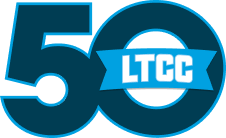Biology 201- Botany
Syllabus & Course Information
Course Information:
This course will cover the basic principles of botany. We will examine the structure and function of plants. Topics covered will include major plant groups, anatomy, reproduction and taxonomy and field identification of local taxa. Starting in early May (weather permitting), we will begin identification of local plant species outdoors during the second hour of class on Mondays. Please wear appropriate clothing and footwear. Consistent hard work and effort is required for you to do well in the class. One excellent strategy is to work hard at taking good notes in class; in the evening, recopy your notes and review them for 30-45 minutes. Answer the lesson objective questions as we cover that material in class. Repetition3 is necessary to master the quantity and quality of material you will be required to know for this course.
To do well in this course, you must spend time to learn the material! Carnegie Units – 5 units x 2hrs./unit = 10 hrs./week of study time!!
Text: Plant Biology by Rost, Barbour, Stocking and Murphy, Wadsworth Publishing Company. 2nd edition
Lab Text: Laws Field Guide to the Sierra Nevada and additional lab exercises.
Additionally, please download and print the Field identification of the 50 most common plant families in temperate regions PDF.
Attendance/Participation: If you have excessive absences from lab (more than 2!) you will be dropped from the course.
lectures, labs, discussions and readings. Exams reflecting course material are worth a total of 60% of the course grade.
Grading:
| Grading Summary | Grading Scale | |
| 10% - Quizzes/in-class assignments | A= 90-100 | |
| 15% - Midterm I | B= 80-89 | |
| 20% - Midterm 2 | C= 70-79 | |
| 25% - Final Exam | D= 60-69 | |
| 20% - Lab Reports/Participation | F= Below 60 | |
| 10% - Term Projects | ||
| 100% Total |
Electronic Device Policy:
Turn off ALL electronic equip. (PHONES, IPODS, LAPTOPS, ETC ) before class begins, please. All electronic devices are prohibited during CLASSES, LABS, FIELD WORK AND exams. No electronic submissions of assignments, please.
Academic Dishonesty and Plagiarism Policy:
You may always discuss course information, lesson objectives, and lab assignments together (except on quizzes, exams and home works), but all answers must be your own. Do not use the same wording as anyone else on any assignment. When you use someone else’s idea, be sure to provide a citation. If you are found to be cheating or plagiarizing, you will receive a 0 for the assignment, and if flagrant, an F in the course. This class will abide by the LTCC’s Student Academic Dishonesty and Plagiarism Policy (please see the College Catalog).
Exam Reschedules:
Late Work Policy: Late work not accepted without instructor approval, subject to rescheduling policies outlined above.
Study Buddies:
Choose 2 or 3 people for your study buddies. These are the people who will pick up handouts for you if you are absent, and who will share notes with you for the class you missed. With your study buddies, you can ask about material you don’t understand, divvy up study chores, prepare for exams, etc. Learning cooperatively is wonderful, but it doesn’t work if every one doesn’t do an equal share of the work. Take good care of your buddies! Do not take advantage of them! You may always discuss course information and assignments together on collaborative assignments, but all answers must be your own. Do not use the same wording as anyone else on any assignment.
Student Learning Outcomes:
1. Model plant structure and function at the molecular, cellular, and organismal levels.
2. Diagram patterns of plant diversity in major taxonomic groups, and predict the
basic taxonomy of a plant using its morphological characteristics.
3. Integrate structure and function of plants and their interactions with the abiotic
and biotic environment to analyze patterns of evolutionary diversity in plants.
Course Objectives:
After completing this course, students will:
1. Identify Division and Family taxonomic categories of plants based on morphological features.
2. Relate the structure to function of major plant tissues.
3. Describe organs and process of plant reproduction.
4. Relate alternation of generations in plant and plant like organisms to their evolutionary
histories.
5. Describe life cycles of major plant groups.
6. Relate the evolutionary relationships of major plant groups to physical and
geologic changes on earth.
7. Identify local plants in our Tahoe Basin ecosystems.
*If you require accommodations for a disability, please obtain the required appointments/paperwork
at Lake Tahoe Community College's Disability Resource Center; make sure to email me to let me know of your appointment!
